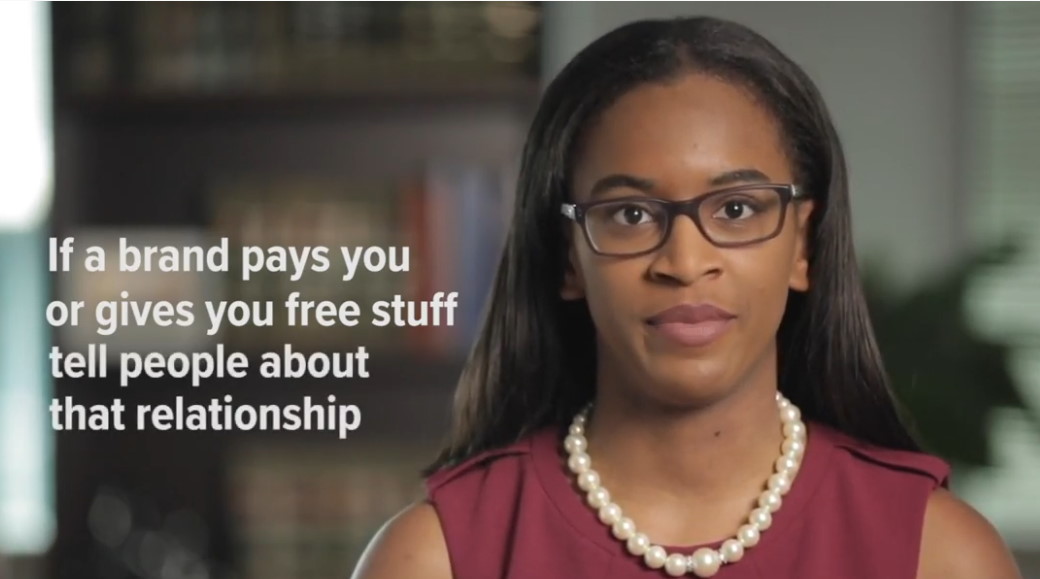FTC's new disclosure guidelines for influencers leaves no room for misunderstanding
'Disclosures 101' is short, simple, and covers all the basics.

The Federal Trade Commission has had a bit of a strained relationship with influencers over the years. Conventional advertisers are easy enough to deal with—there's no mistaking an ad when one pops up in the middle of NCIS: Los Angeles—but YouTube personalities can be trickier to pin down.
A few examples: In 2015 a group of YouTubers enthusiastically promoted the game Dead Realm with a series of "Let's Play" videos, without disclosing that they were involved in its development. That same year, Machinima settled deceptive advertising charges over its failure to disclose that it had paid influencers for their "seemingly objective opinions." A year later, WBIE reached a similar settlement with the FTC over its failure to require YouTubers including Felix “PewDiePie” Kjellberg to disclose that they were paid to promote Middle-earth: Shadow of Mordor. In 2017, the FTC issued a warning to Trevor "TmarTn" Martin and Tom "ProSyndicate" Cassell for promoting the skin gambling site CSGO Lotto without disclosing that they also owned it.
The CSGO Lotto incident resulted in a mass mailing of "educational letters" to influencers, warning that "if you are endorsing a brand and have a 'material connection' with the marketer … then your connection should be clearly and conspicuously disclosed." Another round of similar letters went out earlier this year.
But who reads long letters from The Man, right? So now it appears that the FTC is trying to nail down influencer guidelines more clearly and unmistakably with "Disclosures 101 for Social Media Influencers," a simple, easy-to-follow guide that "provides influencers with tips from FTC staff about what triggers the need for a disclosure and offers examples of both effective and ineffective disclosures."
"The guide and accompanying videos underscore that the responsibility to make disclosures about endorsements lies with the influencer," the FTC said. "The guide outlines the various ways that an influencer’s relationship with a brand would make disclosures necessary, and it reminds influencers that they cannot assume that followers are aware of their connections to brands."
Appropriately, there's a video, too:
Unlike the dense and dull FTC letters, the new guide lays out the basics very clearly and without getting bogged down in detail. It provides a quick explanation of what a "material connection" is, for instance—"a personal, family, or employment relationship or a financial relationship – such as the brand paying you or giving you free or discounted products or services"—and explains in clear terms how disclosures should be made in images, videos, and livestreams.
Keep up to date with the most important stories and the best deals, as picked by the PC Gamer team.
There's also guidance on the disclosures themselves: Keep it simple, keep it clear, and don't use "vague or confusing" terms like "spon" or "collab," which aren't real words anyway.
Other things to keep in mind:
- You can’t talk about your experience with a product you haven’t tried.
- If you’re paid to talk about a product and thought it was terrible, you can’t say it’s terrific.
- You can’t make up claims about a product that would require proof the advertiser doesn’t have – such as scientific proof that a product can treat a health condition.
It's all very basic stuff, with plenty of pictures, but that's probably the approach that's needed here. An awful lot of influencers are young and don't grasp how and why this kind of stuff is an important part of what they do—and how failing to take it seriously can come back to bite them in the ass.
It's an imperfect comparison but it brings to mind the case of Faze Jarvis, who was recently permabanned from Fortnite for using an aimbot on an alternate account: He's 17, and as a former 17-year-old myself I have no problem believing that he just didn't think about the consequences before he went ahead and did something stupid. This new FTC guide isn't going to bring a hard halt to bad behavior on YouTube, but it will at least make it easier for kids who very suddenly find themselves in the spotlight to know what's expected of them.
A "Disclosures 101 for Social Media Influencers" web page is also up at ftc.gov. It's the same information as in the PDF guide, but with links to videos (and without the nice layout).

Andy has been gaming on PCs from the very beginning, starting as a youngster with text adventures and primitive action games on a cassette-based TRS80. From there he graduated to the glory days of Sierra Online adventures and Microprose sims, ran a local BBS, learned how to build PCs, and developed a longstanding love of RPGs, immersive sims, and shooters. He began writing videogame news in 2007 for The Escapist and somehow managed to avoid getting fired until 2014, when he joined the storied ranks of PC Gamer. He covers all aspects of the industry, from new game announcements and patch notes to legal disputes, Twitch beefs, esports, and Henry Cavill. Lots of Henry Cavill.

